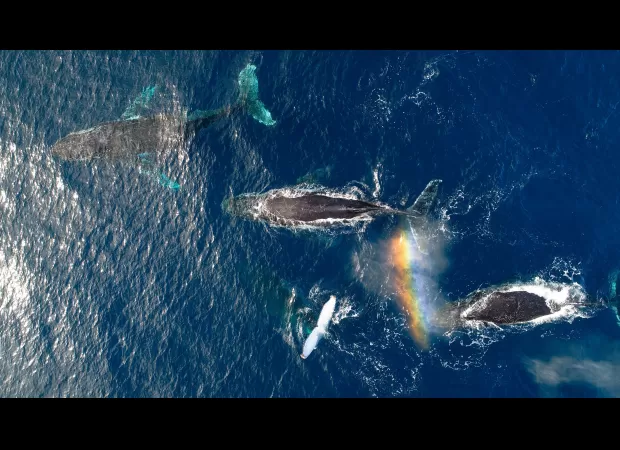Study finds humpback whales experienced increased well-being during pandemic.
Research showed less environmental stress during lockdown.

According to recent research, it appears that humpback whales off the east coast of Australia experienced a boost in their overall well-being during the COVID-19 pandemic. The study, led by the University of Queensland's School of the Environment, utilized drone technology and blubber samples to measure the health, size, and condition of these magnificent creatures near North Stradbroke Island.
The researchers closely monitored the whales during their yearly migration and intense breeding period in both 2020 and 2021. What they found was quite surprising – the humpback whales had lower levels of cortisol, a stress hormone, as the pandemic entered its second year. This significant decline in cortisol levels indicated a decrease in "environmental stressors," which could be attributed, in part, to the lockdowns and restrictions put in place at that time.
Lead researcher Dr. Jake Linsky explained that several factors may have contributed to these findings, including a shift in climate to La Niña and a significant reduction in human activity during the pandemic. He also noted that the results suggested a possible decline in pollutants in the whales' remote feeding waters, which could have positively impacted their health.
Dr. Linsky further emphasized the importance of addressing human impacts on the east coast environment. While humpback whales have shown a remarkable ability to adapt to changes in their environment, this study highlights the need to mitigate our effects on their habitat to ensure their continued thriving in our rapidly changing oceans.
He also pointed out that by closely monitoring and protecting humpback whales on Australia's east coast, we can not only ensure their well-being and stability but also gain valuable insights into how other struggling whale populations can be conserved. This research is supported by similar studies that have found a decline in stress hormones in whales on the opposite side of the Antarctic. This further emphasizes the critical role humans play in the overall health and survival of these majestic creatures.






